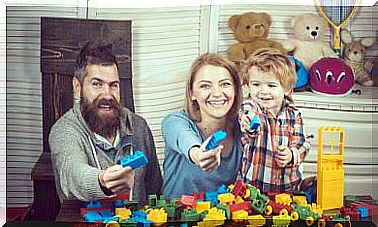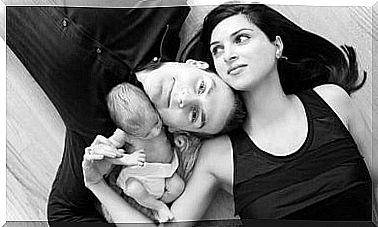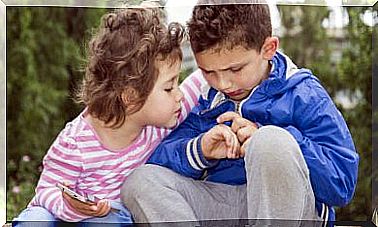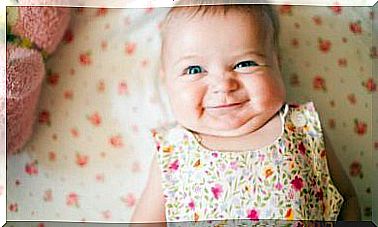Why Do Babies Cry In Their Sleep?
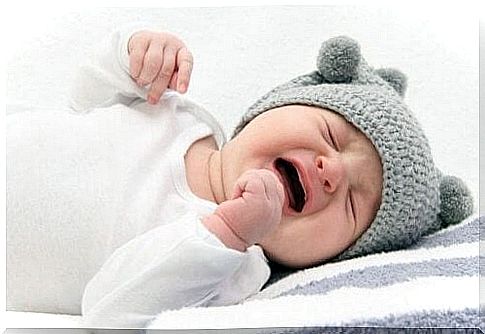
Many mothers wonder why their babies cry in their sleep. The tranquility of our little ones is often a cause for concern as it affects their mood as well as their behavior.
And every mother knows that the amount of sleep our children get has a major impact on our own well-being.
The first thing to keep in mind is that crying and whining is how our babies communicate. So they cry as a way to let us know that something is wrong or that they need our attention.
You may have been woken up in the middle of the night by your child’s crying, thinking that he or she needed you. To your surprise, however, that was not the case. On the contrary, when you went to look you found your child asleep and well, with closed eyes.
This situation is actually much more common than you might think. Yet many mothers do not know how to respond.
Why do babies cry in their sleep?
During the first years of life, it is normal for babies to wake up frequently during the night. Babies have a different sleep cycle than adults.
Often babies have trouble falling into a deep sleep, even when they are exhausted. As a result, they may cry in their sleep. Some may try to fall asleep but can’t because they don’t know how. Why? That’s because they need you.
Nightmares are another reason why babies cry in their sleep. Just like adults, babies have dreams. Most of their dreams have to do with their personal experiences.
Sleep Disorders in Babies
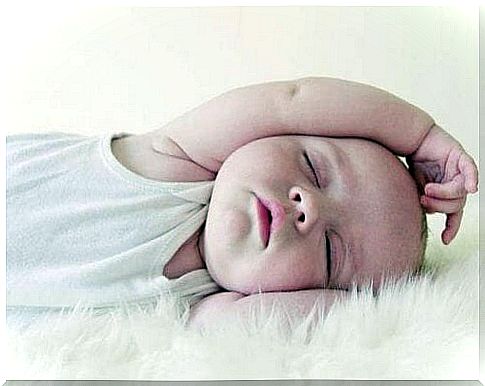
Babies go through different stages of sleep that are part of their development process. Waking up at night is part of the process.
Sometimes these periods are minor. For example, babies can simply express a small whimper or moan.
However, some periods can be more persistent and distressing. These periods are considered night terrors and have a stronger effect on children.
In both cases the situation is the same… When the mother goes to look at her baby, she notices that although he cries, she is asleep. This sleep disorder occurs when babies are in a deep sleep, also known as REM.
During the REM sleep phase, babies experience the deepest level of sleep. Therefore , they cannot fully wake themselves up. They are also not fully aware of what is happening to them.
When babies cry in their sleep, they may feel agitated, confused and scared. At the same time, they are unable to respond to external stimuli.
Night terrors usually last only a short time. They are over within a few minutes, after which children go back to sleep peacefully.
At the same time, some children wake up in a confused state and may even sit up and open their eyes. This phenomenon, called “confusional arousal,” can last anywhere from 5 to 15 minutes. Trying to calm a child in this state will only make the situation worse and last longer.
How do you calm a baby who is still sleeping?
If your baby cries with his or her eyes closed, it’s best to be patient, wait and observe.
The fact that children cry or make noise while sleeping doesn’t always mean they want to wake up. As long as their eyes are closed, this is a sign that they are still sleeping.
When babies cry in their sleep, it is extremely important that parents pay attention to the sound they make. This helps determine what babies need. They may be cold or hungry, or they may have some other unmet need.
If so, they won’t be able to fall back asleep anytime soon. It is important that we help our crying babies to feel better.
When these periods occur in the early morning hours, parents should remain calm and quiet. This is to prevent them from waking their sleeping children.
Take care of their needs with only a minimal amount of light, avoid using bright lights. If you do this, babies may wake up all the way and think it’s time to get up.
Finally, keep in mind that it is absolutely normal for babies to make noise while sleeping. At the same time, when babies cry or whimper, parents should check whether they are sleeping or awake.
Advice for mothers of babies who cry in their sleep

The most important advice we want to give you is to avoid trying to wake your child during these periods. Rather be as quiet as possible, close to your child and wait for him or her to calm down.
In conclusion , these episodes can occur spontaneously, but they can also be the result of external stimuli.
For example, they can occur as a result of persistent noise or a change in the position of your child’s bed. Therefore, it is best to avoid any kind of modification during rest hours.


